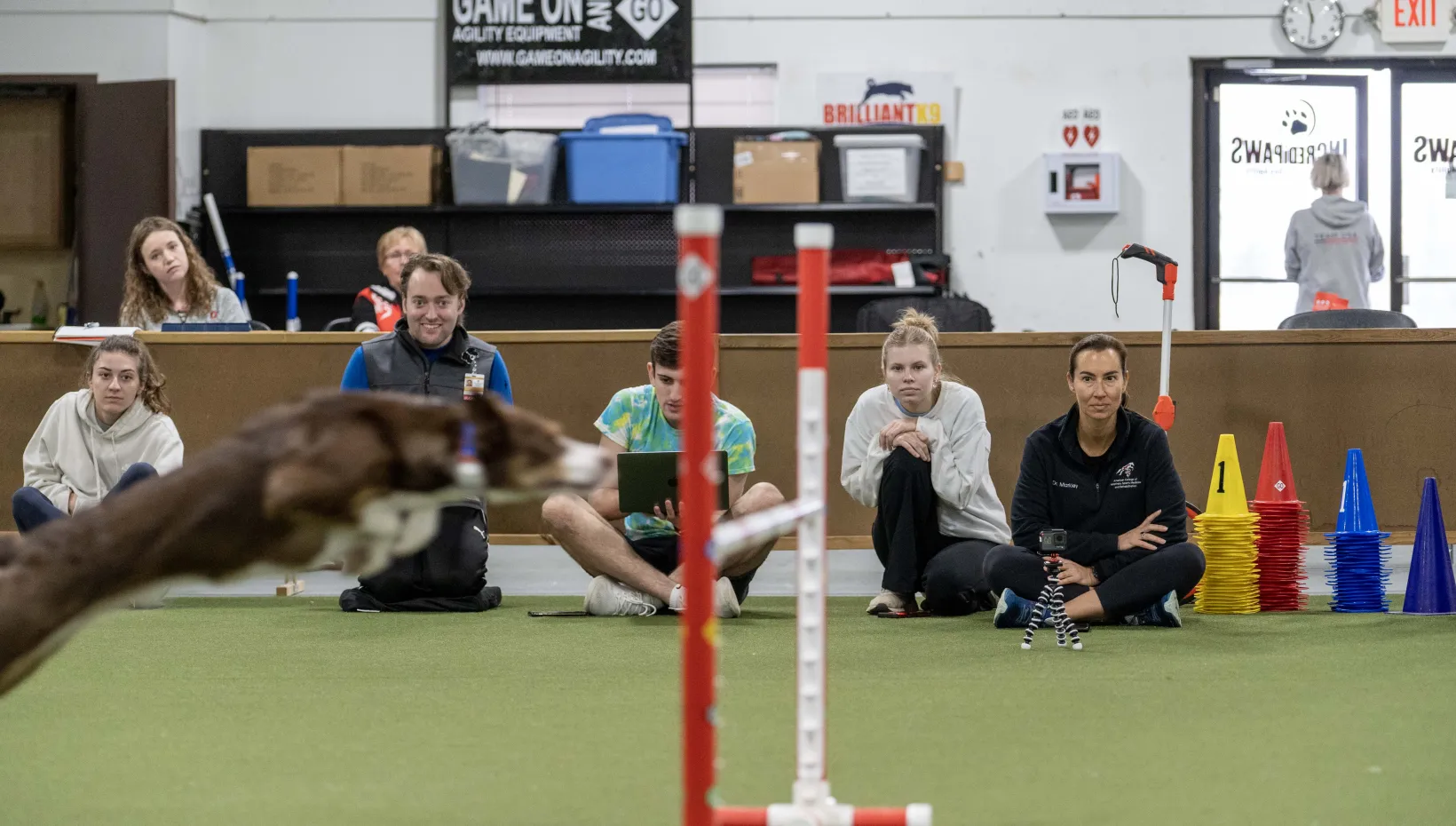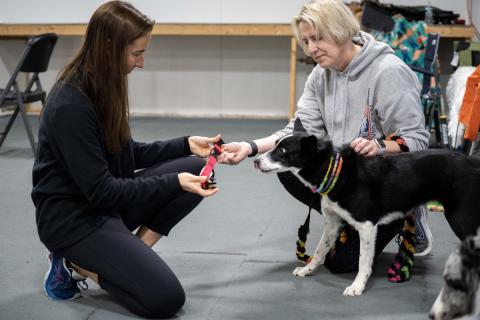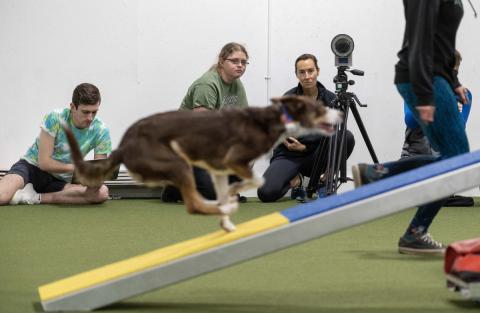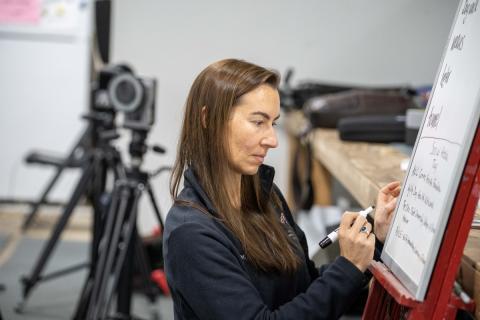Dr. Markley teams up to develop wearable technology to prevent injuries in agility dogs

Article by: Debbie Wakefield
Originally Published
An Ohio State veterinarian is teaming up with researchers across the nation to develop canine wearable technology that could help prevent injuries in agility dogs.
The project is called Agility Innovations Leveraging Electronics (AGILE) and is in collaboration with the Georgia Institute of Technology and the University of Akron. The study aims to develop wearable devices and use machine learning technology to evaluate factors associated with canine agility performance. Results of the study will hopefully lead to improved injury prevention strategies and keeping canine athletes at peak performance.

Arielle Pechette Markley, DVM, CVMA, CVPP, CCRT, DAIPM, DACVSMR, assistant professor of Canine Sports Medicine and Rehabilitation at The Ohio State University Veterinary Medical Center, is the principal investigator for the study.
"Agility dogs and other canine athletes have a high risk of injury, just like human athletes. In human athletes, we understand risk factors for injury, such as fatigue and overtraining, and wearable technology, like fitness tracking watches, can monitor performance and risk factors to help reduce the risk of injury,” said Dr. Markley.
“We do not currently have anything comparable in dogs. We are working to develop technology that can monitor canine performance to detect things like overtraining and fatigue, hoping that this technology can be used to keep our canine athletes and working dogs safe and injury-free."
The team gathered in-person for the first time the weekend of April 1 and 2 at IncrediPaws, an indoor dog agility training facility, to gather initial data.

Local agility dogs wore sensors on their collars that recorded biomechanics data, and there were GoPro cameras set up around the arena. Each dog completed a series of exercises, such as running across the arena, jumping over a hurdle, racing across a wooden A-Frame or running on a teetering seesaw. The team collected data on the dog’s workload, speed, and fatigue. A wide variety of dogs volunteered to help with data collection, ranging from a two-and-a-half-year-old Doberman Pinscher to an eight-year-old Airedale.
This research is funded by the American Kennel Club Canine Health Foundation (AKC CHF), a nonprofit organization dedicated to advancing the health of all dogs and their owners.
